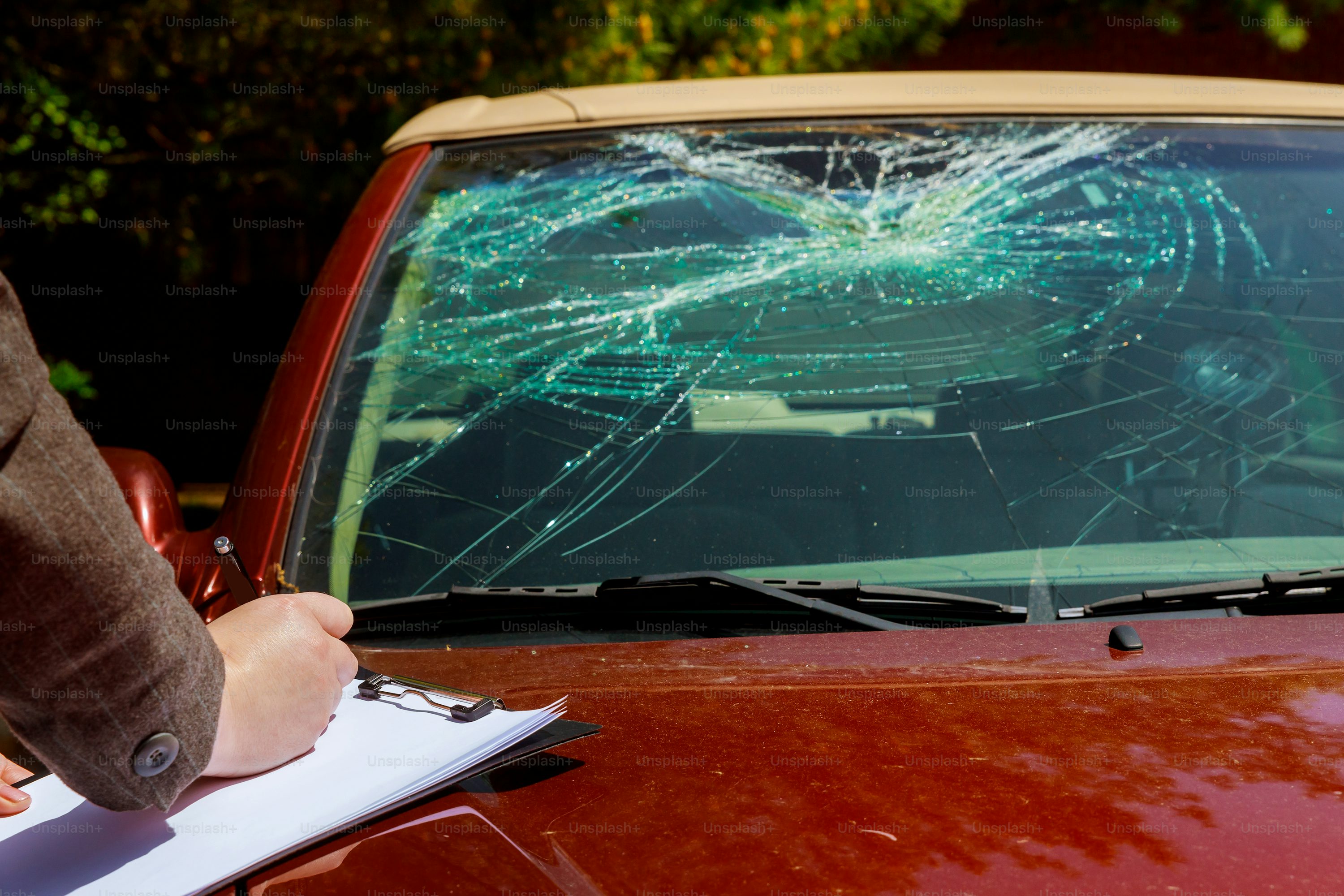Hitting an animal while driving is something that we all want to avoid, but sometimes it can be inescapable. This simple guide will help you in the event that the worst should happen and explains the steps you must legally take if you are involved in a collision with an animal.

In This Guide:
What should I do if I accidentally hit an animal on the road?
If you are unfortunate enough to hit an animal on the road while driving, then there are certain legal steps that you must take. The first thing to do is to slow down to a safe stop and check that you and anyone in the car with you are uninjured.
By law, under The Road Traffic Act 1988, you are required to stop and report the accident to the police within 24 hours if you have injured or killed any of the following animals: horses, cattle, mules/donkeys, dogs, pigs, goats or sheep. Once you have reported the collision to the police then your legal duty is complete. If you have collided with any other wild or domestic animal, then you are within your rights to drive on.
However, if the animal is injured you may wish to call the RSPCA in England and Wales on their emergency line (0300 1234 999) for advice on how to deal with the animal. In Scotland, you can call the Scottish Society for the Prevention of Cruelty to Animals (SSPCA 0300 999 999), or in Ireland the Ulster Society for the Prevention of Cruelty to Animals (USPCA 028 3025 1000).
Though you are not legally obliged to report it if you hit a cat, the decent thing to do is to try and contact the owner. Check to see if the animal has a collar as this may have details for you to get in touch with the owner. Be wary when approaching the animal as injured animals can be frightened or aggressive towards people. If you can’t contact the owner, then you may want to take the animal to the nearest vet or call the RSPCA, SSPCA or USPCA.
If the animal is dead and you are able to move it, make sure you clear it to a safe position away from the road. If you are too distressed to move the animal, or it’s too large, make sure to let the police know so that they can move the animal. Before you drive on, be sure to check your vehicle and make sure it’s safe to leave the scene.
Helping injured animals
Always make sure to check your own safety and the safety of those around you before trying to help an injured animal. Always take care when approaching an injured animal. Wild animals are not used to interactions with people and may try to defend themselves. This may also be the case with domestic animals as they may not like strangers, or their injury may have made them aggressive. If an animal appears aggressive it may be better to call the police or the RSPCA rather than dealing with the animal yourself. The RSPCA have an injured animal help page that may assist you when dealing with an injured animal.
Don’t try to transport any of the following animals: deer, wild boar, birds of prey, snakes, otters, badgers, foxes, swans, geese or gulls.
If an animal has died in the collision, then you may be allowed to take it home to eat as ‘roadkill’. Although most people couldn’t think of anything worse than eating an animal killed on the road, there is a common thought that as long as you were not directly involved in the collision yourself then it’s ok to pick up the dead animal and take it home. This is a bit of a grey area though, so to be safe, avoid taking home a dead animal that you have killed in a collision. Remember some wildlife is protected, endangered or property of the crown, such as badgers, certain birds of prey and swans, so if you’re not sure then it’s best to follow the rules.
Will hitting an animal affect my car insurance?
If your car is damaged in a collision with an animal, or if you or your passengers are injured, then you can make a claim with your car insurance provider. Make sure you check the terms and conditions of your policy before claiming. It will also help if you take some photos of the accident site and the damage at the time of the collision. If possible, collecting a witness statement may also help.
In the case of domesticated or farm animals, you may be able to make a case that the damage is the owner’s fault and that they are liable for any damage to you or your vehicle.
Making a claim for any damage to your car caused by an animal collision will mean that you lose your no claims bonus.
How to avoid animal collisions
Sometimes it’s impossible to avoid an animal collision, animals can appear suddenly, not giving you time to slow down or stop. You must also be careful not to swerve into other cars or pedestrians in order to avoid hitting an animal. Driving prudently is the best advice and make sure to:
- Always drive with caution and within the speed limits, keeping your concentration on the road.
- Make sure to look out for signs warning you of potential animal hazards, such as deer warnings or animals crossing signs.
- Animals can be especially active in the early mornings and early evenings so keep an eye out when driving at those times. Make sure to utilise your lights when visibility is poor.





